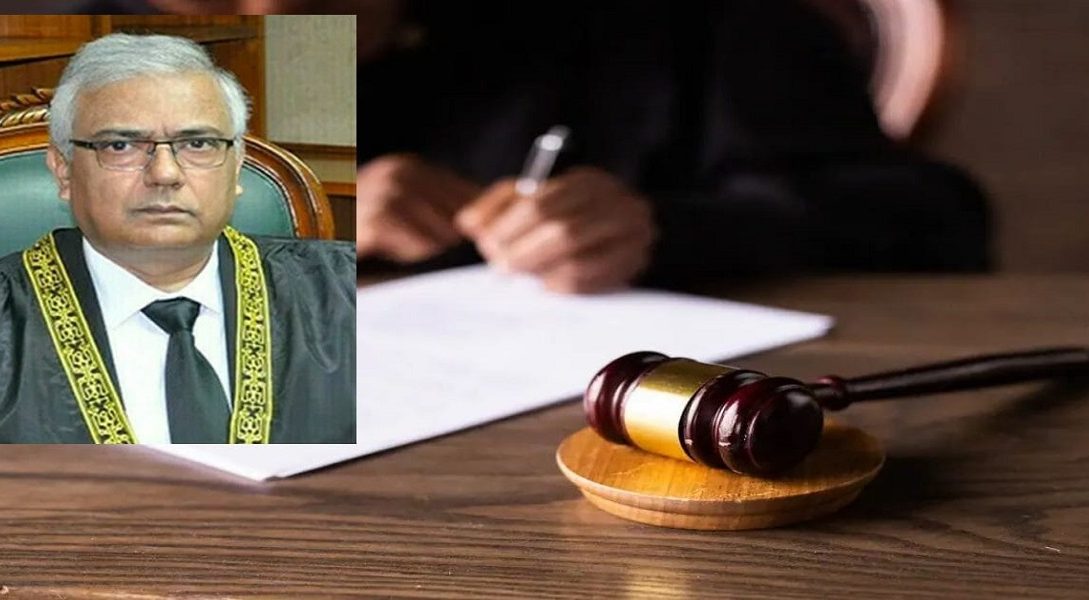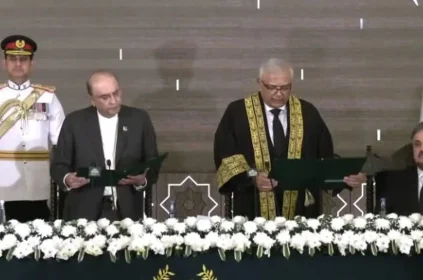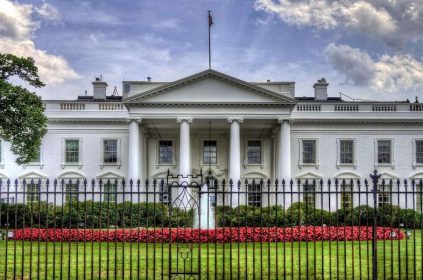NATIONAL NEWS
ISLAMABAD: President Asif Ali Zardari has formally appointed Justice Aminuddin Khan as the inaugural Chief Justice of the Federal Constitutional Court (FCC), the country’s newly constituted judicial forum created under the 27th Constitutional Amendment.
According to a notification issued by the Ministry of Law, the appointment was made under Article 175-A(3), read with Article 175-C of the Constitution. Justice Aminuddin will assume charge once he takes oath of office.
Justice Aminuddin, whose legal career spans nearly 40 years, previously headed the now-abolished constitutional bench formed under the 26th Constitutional Amendment. His elevation marks a significant step in operationalising the FCC, which is designed to include equal representation from all provinces.
Under the new constitutional framework, powers traditionally vested in the Supreme Court—such as hearing key constitutional matters—are being shifted to the FCC. The authority to initiate suo motu proceedings has also been transferred, with the new court empowered to take action on petitions requesting such notices.
While the bill establishing the FCC was being debated, PPP Chairman Bilawal Bhutto-Zardari remarked that suo motu powers had historically produced far-reaching consequences for both the PPP and PML-N, and that the new system would limit the judiciary’s unilateral authority in this regard.
Chief Justice Yahya Afridi will continue as the country’s top judge until the end of his three-year term. Once his tenure concludes, the most senior judge from the combined seniority of the Supreme Court and FCC will take over as the new chief justice.
As part of the recent judicial restructuring, constitutional benches of the Supreme Court have been dissolved, and the authority to form benches under the Supreme Court Practice and Procedure (Amendment) Bill 2025 has been delegated to a three-member committee led by the chief justice. The committee will also include the senior-most judge and another judge nominated by the chief justice. Bench-making decisions will be made through majority vote.
Judges of the Federal Constitutional Court will serve until the age of 68—three years longer than the current retirement age for Supreme Court judges.
The FCC will exclusively hear matters involving constitutional interpretation, federal-provincial disputes, advisory opinions, and appeals stemming from high court rulings under Article 199.
Born on December 1, 1960, in Multan to respected lawyer Advocate Khan Sadiq Muhammad Ahsan, Justice Aminuddin received his early education locally. After completing his secondary schooling in 1977, he earned a Bachelor’s degree in Philosophy in 1981, followed by an LLB from University Law College, Multan in 1984. He later obtained a diploma in Taxation Law.
He began his legal practice under the guidance of his father, receiving his license to practice in lower courts in 1985 and later enrolling as an advocate of the Lahore High Court in 1987. In 2001, he joined a law firm in Multan and that same year was enrolled as an advocate of the Supreme Court.
Over the years, Justice Aminuddin built a reputation as a civil law specialist, handling prominent cases relating to property, inheritance, and pre-emption from trial courts all the way up to the Supreme Court.
He was appointed to the Lahore High Court in 2011, where he became known for efficiently resolving longstanding civil disputes. His judgments—delivered from the Bahawalpur, Multan, and Lahore benches—were widely acknowledged and often upheld by the Supreme Court.
Justice Aminuddin was elevated to the Supreme Court on October 21, 2019. Among his more recent contributions is his notable dissenting opinion in the July 12 judgment concerning reserved seats. He also served on the nine-member bench that reviewed the presidential reference regarding the execution of former prime minister Zulfikar Ali Bhutto.
Beyond the courtroom, he has played a significant role in legal education, lecturing at University Law College, Multan, and serving on the governing bodies of institutions such as the University of Engineering and Technology, Lahore.
Read more: https://nayakashmir.com/justice-mansoor-justice-athar-step-down-from-supreme-court-of-pakistan/
















